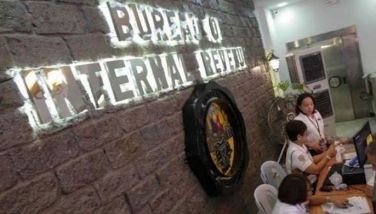Banking sector fares well in 2009
MANILA, Philippines - Despite the global recession, the country’s banking sector fared well in 2009 with the help of reform initiatives from the Bangko Sentral ng Pilipinas (BSP), a member of the Monetary Board (MB) said yesterday.
MB member Ignacio Bunye said that in 2009, “the Philippine banking system weathered well the global financial storm.”
“Important banking reforms, particularly in the areas of corporate governance, risk management, and asset clean-up, have strengthened the banking system further, boosting its overall performance in terms of higher asset growth, enhanced asset quality, improved profitability and better capitalization,” he said, citing a report of BSP Governor Amando M. Tetangco Jr.
He said the domestic banking system’s capital adequacy ratios (CARs), a prime indicator of financial health, “showed improvements both on a solo and consolidated basis.”
The BSP requires a minimum CAR of 10 percent while the Basel II Accord prescribes a minimum CAR of eight percent.
“Owing to significant buildups in qualifying capital as well as issuances of tier capital notes, most banks easily hurdled the capital requirements. As of the second quarter, CAR on a consolidated basis hit 15.68 percent while CAR on a solo basis hit 14.81 (percent),” he said.
Bunye said the BSP was also able to deliver on its principal mandate of maintaining price stability despite the twin challenges posed by increasing oil prices and commodity supply constraints caused by tropical storm Ondoy and typhoon Pepeng.
“Because of a benign inflation, the BSP could afford to peg its policy rates at an all time low. This has translated into lower pass-on interest rates charged by banks to their clients. Lower inflation also helped maintain the purchasing power of the ordinary Filipino,” Bunye said.
Also because of low inflation, the BSP could afford to provide “liquidity enhancement mechanisms,” thus providing the necessary environment for banks to increase lending activities, he said. “Indeed, commercial loans expanded during the year albeit at a moderate pace,” he added.
He said the external sector provided another source of stability for the economy. Supported by record remittance flows from overseas Filipinos and receipts from the business process outsourcing sector, the country posted a balance of payment surplus in excess of $3.3 billion, Bunye said.
“This in turn has resulted in a record build up of Gross International Reserves – more than enough to pay for nine months of imports and more than enough to cover our short term maturing foreign obligations,” Bunye said.
Last year also saw the BSP continuing to be active in launching and conducting various advocacies, including the Credit Surety Fund, Economic and Financial Learning Centers in Luzon, Visayas and Mindanao, Tulong Barya para sa Eskuwela, public information campaign and OFW financial literacy campaign, he said.
The Philippines also gained global recognition for leadership in microfinance and mobile banking last year.
- Latest
- Trending























